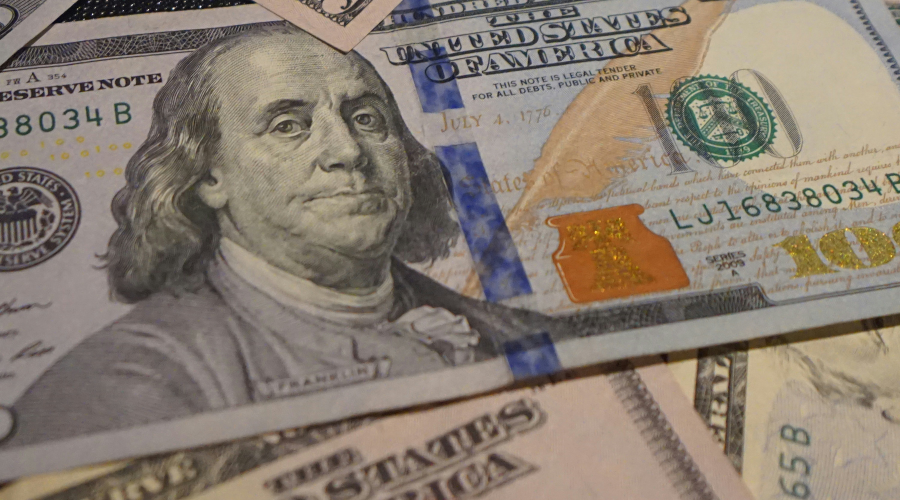What is a Money Market Account and How Does It Work?
March 5, 2024

A money market account is a popular choice for savers with all kinds of financial goals, such as putting a down payment on a house in Indianapolis or catching the next Notre Dame® football game. These accounts offer earning benefits that aren’t always found with other types of deposit accounts.
Do you have questions about what makes this financial product unique? Read more about the money market deposit account and discover if it’s right for you.
What is a Money Market Account?
Money market accounts (MMAs), or money market deposit accounts (MMDAs), are bank accounts you put money into to save money for later. They pay out interest, with rates determined by the current market conditions and the bank’s own policies.
Unlike standard savings accounts, MMAs also have some features that are common to standard checking accounts, such as the ability to take money out with a check or at an ATM. MMAs are FDIC-insured, as well.
How Does a Money Market Account Work?
Money market deposit accounts act like a hybrid between a checking and savings account. The money you leave in the account as savings earns interest over time, and the interest earned can potentially be higher than other types of accounts.
However, you aren’t limited to keeping the money in there; it’s not locked in. You can take money out easily but may be limited to the number of withdrawals you can make within a set amount of time. These accounts often issue checkbooks and debit cards, so you can make purchases or get cash as needed.
MMAs are considered deposit accounts. While the federal regulations limiting the number of withdrawals have been relaxed, each bank may have its own rules for how many times you can take money out in a month. To know the conditions for your MMA, talk to a bank representative directly.
You may also need to keep a minimum balance for your account to remain open. The bank can inform you of what that minimum is and what will happen if the account balance falls below it.
Pros and Cons of Money Market Accounts
Like any financial product, It’s best to weigh the advantages and disadvantages of a money market account before opening one.
Pros
Consumers like money market accounts for a few reasons, including:
- They offer competitive interest rates that may often be higher than many standard checking accounts.
- You can make unlimited deposits in any amount after account opening.
- It’s easy to take money out when needed, including with checks and debit cards.
- Accounts are typically FDIC-insured.
Cons
MMAs might not work for every situation. Common drawbacks include the following:
- There may be a limit to how many monthly withdrawals you can make. (It depends on the bank.)
- They have a variable interest rate that can increase or even decrease over time. How much you earn depends on market conditions.
- Interest rates aren’t as high as what may be needed for long-term goals, such as retirement, and may not be all you need to save.
- Some MMAs require a high minimum opening deposit or large daily balance minimums and may not be accessible to those without a large amount to start with.
Both money market accounts and high-yield savings accounts are deposit bank accounts designed for saving money, and they are both most likely FDIC-insured.
Here’s how they differ:
While both give you access to funds and allow withdrawals, MMAs may make it easier with checks and a debit card with ATM access. While they may grant access to an ATM, high-yield savings accounts don’t typically give you check or debit card options. However, high-yield savings accounts, or similar accounts such as a Centier Connect savings account, may pay a higher annual percentage yield (APY).
Money Market Accounts vs. Checking Accounts
On the surface, money market accounts and checking accounts seem very similar. You can use them to keep your money secure, as they are both FDIC-insured. You can even make withdrawals when you need cash, including the use of checks and ATM machines to access your money.
However, they differ in a few ways, including interest rates. MMAs usually have a higher APY, and some checking accounts pay no interest at all.
While MMAs may have large initial deposit requirements, some checking accounts can be opened with just a few dollars. When it comes to minimum balance requirements, checking accounts may have none at all; MMAs usually have a set amount your account can’t fall below.
Money Markets vs. Certificate of Deposit (CD)
Both money market accounts and certificates of deposit help you save money and give you interest when you leave your money in the account. CDs usually pay a higher APY than money market accounts.
It's also more difficult to withdraw your money from a CD since it's locked in for a fixed term. If you do decide to take your money out early before the term ends, expect to pay a fee that cuts into the interest earned. MMAs don’t charge fees for this because there is no fixed term, and they make it easy to take out money whenever you want.
When an MMA is the Right Choice
Do you have a savings goal that’s important to you? A money market account may be a good tool to help make your dreams come true.
Consider that many consumers have more than one account type, opting for a checking account for daily money needs and a savings account for long-term savings. With a money market deposit account, you get the best of both worlds: convenient access to your money and a competitive interest rate.
Centier makes it easy to set up your new money market account.


